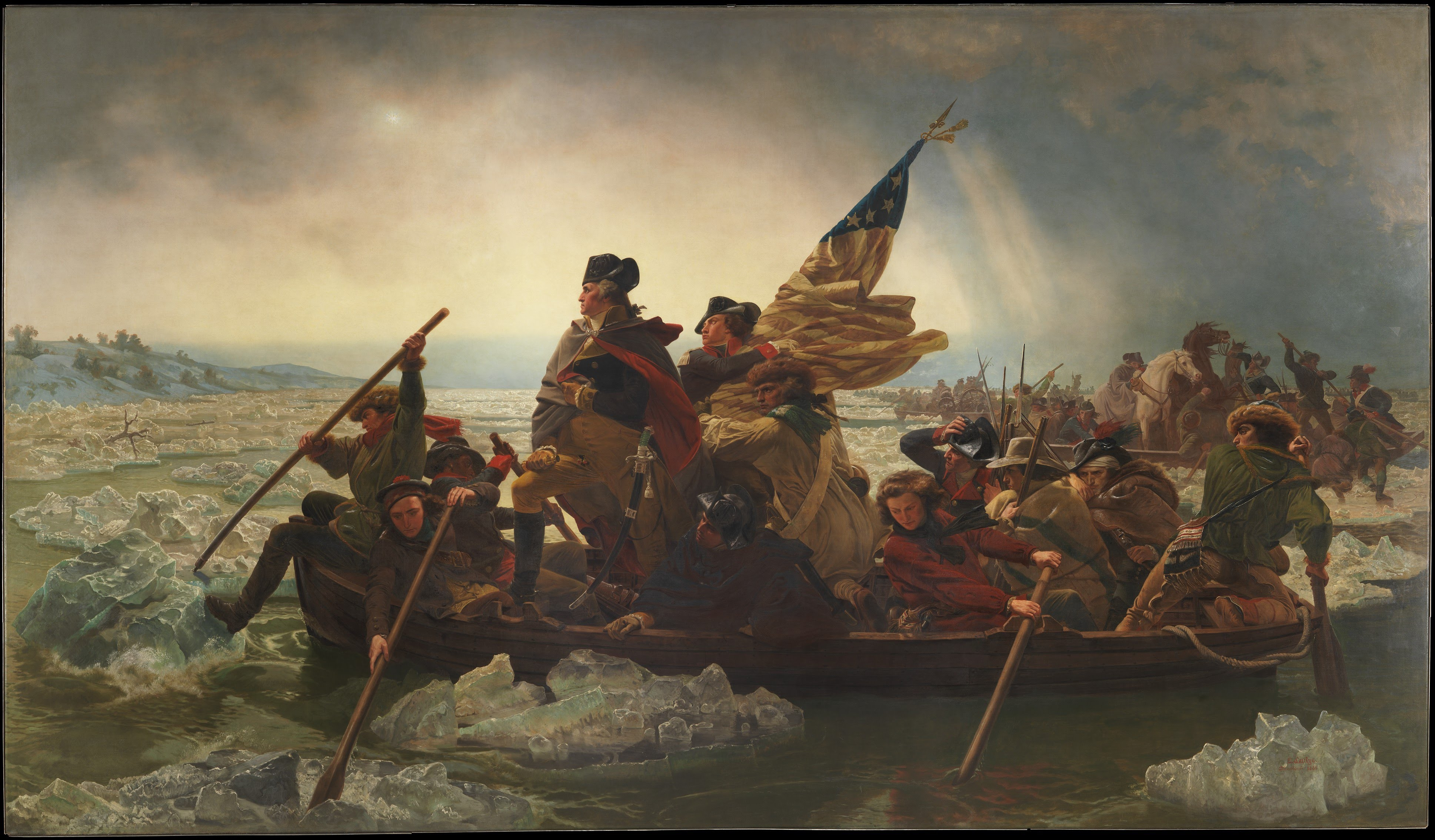scarcity?Scarcity
The same artist (Emanuel Gottlieb Leutze) painted this:

Wealth is accumulated through “profitable balances.”
Mercantilism was the dominant European economic system between the 15th and 18th centuries. Mercantilist governments believed that wealth could only be measured in gold and silver. Since these two metals are in very short
supply, it followed that one country’s gain was another’s loss. So, each nation tried to make more money onexports— goods sold to other countries—than it spent onimports—goods bought from other countries.To accomplish this goal, governments actively interfered with the economy, using their power to support domestic industries, while discouraging the purchase of goods from other countries.
Under mercantilist regimes, colonies are moneymakers. They exist only to provide resources to the ruling country.
Try to translate these rules (which are already translated from 17th-century German) into 21st-century English.
What would mercantilism look like today? What would we not have?